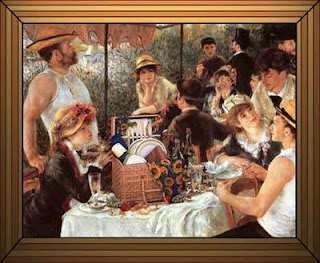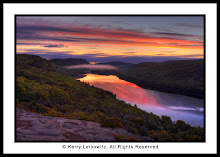I am starting to get (well, okay let’s face it, I have been) really annoyed with people who are convinced they can change the world with peaceful protests. When I was in college I was in a “peace” group, but we did a lot more than protest. We were more a group that spread the opposing viewpoint’s opinion on major issues (Veterans Against the Iraq War, etc). But now I talk to my friends who are still in college and all they seem to do is plan marches, and march against war, for LGBT rights, and many other things. I am quite frustrated. These are some of the most intelligent people I know, and they are wasting their time walking down streets with signs when they could be doing something that might actually change the world.
GreenPeace can hang all of the banners they want off of the sides of buildings and bridges but if they believe that the hardened heartless CEOs and politicians are going to change their consumer driven goals because of a banner they see, they are sorely mistaken.
The fact that we even “need” an Animal Planet channel is sad in and of itself. If the network thinks they will change things by spreading the word and knowledge about endangered and extinct animals that lived half a country (or even half a block) away from the couch the viewer is sitting on they are wrong.
These silent campaigns are far too easily ignored by both the general public and the leaders of Western civilization. Activists and protestors that go far enough to actually start to change something are promptly silenced and most of the world continues on without even realizing it happened. The news media will cover a business opening (or re-opening) before it will cover the loving soul who is living in the branches of a doomed redwood.
So, what should you do? Well you can continue signing your petitions and making your signs and practicing your chants for your marches, or you can actually change the world. You can join that activist in the tree, and bring a camera along. You can stop the pollution that is constantly streaming into our already quite toxic waterways. You can plant a garden for yourself. You can do all of these things but still it is not enough. It is never going to BE enough when our planet is dying before our eyes. Let me rephrase that, our planet is being murdered before our eyes and we pay less attention than we do to a mid season recap of American Idol.
This world will change all on its own in time, as the oil runs out and the infrastructure crumbles. I, personally, am not willing to wait for it to happen on its own. Humanity may not even be around to see it. 90% of large ocean fish are definitely not going to be around to see it. 23,000 dolphins a year will not be around to see it. The salmon, koala bears, arctic foxes, polar bears, emperor penguins, and clownfish might be gone as well, along with so many other beautiful and intricately necessary species.
So what are you going to do?


